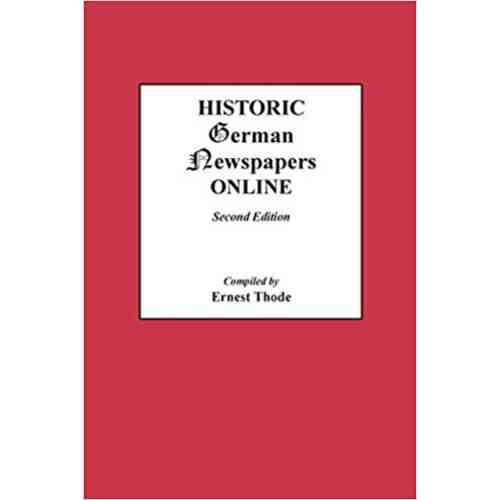Your German genealogy research will not be complete until you have thoroughly examined all of the resources available–and that includes a search of German-language newspapers. Astonishingly, there are more than 2,000 historic German-language newspapers online at numerous public, private, and commercial websites. The combined newspapers comprise billions of pages and refer to millions of individuals. This book will help you discover all digitally available German-language newspapers 50 years or older, search them by location and title, and narrow down the dates for which they are available online. The genealogical information you can find in these newspapers is almost limitless. It includes notices of births, marriages, and deaths from civil registrations; baptisms and wedding announcements from churches; intentions to emigrate; trade news; lists of pupils; appointments to office; promotions, transfers, and retirements; deaths and estate sales; lists of hotel guests; and a multitude of everyday notices.
Since the first edition of this book was published in 2014, a great many more historic German newspapers have been digitized, prompting the need for this enlarged second edition, which is nearly 100 pages longer than the previous edition. The book’s coverage is quite literally worldwide. Of course, by far the largest number of German-language newspapers online are from Germany, followed by Austria, then present-day Poland. But more than two dozen other countries throughout the world are represented, including Australia, Belgium, Brazil, Canada, China, Czech Republic, Egypt, Estonia, France, Georgia (country), Italy, Latvia, Lithuania, Luxembourg, Mexico, Norway, Paraguay, Russia, Samoa, Serbia, Slovakia, Slovenia, Switzerland, Tanzania, Turkey, Ukraine, and the United States.
To use this book, first go to the Places section, look up your locality of interest or the largest nearby city, and note the title of the paper and the years covered. In non-German countries, look for large cities or capital cities. Next, go to the Titles section, noting the abbreviation for the URL (website) where it is located. Then go to the Key to URLs<.b> section and find the website corresponding to that abbreviation.
Whether you are a genealogist, family historian, demographer, migration researcher, or social historian, you’ll find that these newspapers are extremely useful resources.


